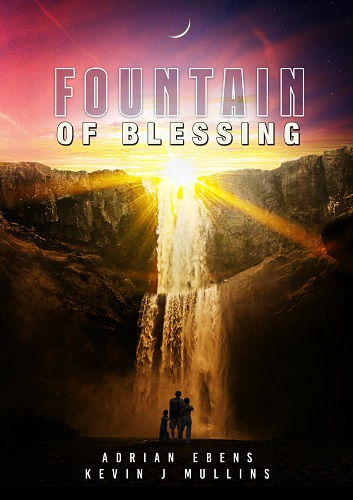Feasts of Refreshing from God
On God’s Feasts (For Bro. Edmon)
In Leviticus 23 it says:
“Speak unto the children of Israel, and say unto them, concerning the feasts of the LORD, which ye shall proclaim to be holy convocations, even these are my feasts:” (Leviticus 23:2)
What is the first feast mentioned? The Sabbath!
“Six days shall work be done: but the seventh day is the sabbath of rest…” (Leviticus 23:3)
So the Sabbath is a feast. We keep the feast of the Sabbath, even though we don’t go to Jerusalem, we don’t sacrifice animals, we don’t have a priest, etc.
Leviticus 23 continues on with the other feasts. Why shouldn’t we keep these also?
------
People say it is because the yearly feasts are ceremonial law. The Sabbath is in the 10 Commandments, but the feasts aren’t. But do we keep things that are in the law of Moses (which was given from Jesus to Moses)? Yes! Jesus Himself said to “love your neighbor as yourself” (Leviticus 19) and to “love the lord your God with all your heart” (Deuteronomy 6), which are in the Law of Moses, not the 10 Commandments.
Besides that, we keep the health laws, and tithe, which are in the book of the law. Was the Book of the Law in the Most Holy Place? Yes it was, at the side of the ark (Deuteronomy 31:26), next to the 10 Commandments, just like Jesus sits at the right hand of the Father! Just as Christ came to magnify and make clear the law, so did the additional law given to Moses explain the law of God:
But He [God] did not stop with giving them the precepts of the Decalogue. The people had shown themselves so easily led astray that He would leave no door of temptation unguarded. Moses was commanded to write, as God should bid him, judgments and laws giving minute instruction as to what was required. These directions relating to the duty of the people to God, to one another, and to the stranger were only the principles of the Ten Commandments amplified and given in a specific manner, that none need err. They were designed to guard the sacredness of the ten precepts engraved on the tables of stone. PP 364.1
The instructions given to Moses for ancient Israel, with their sharp, rigid outlines, are to be studied and obeyed by the people of God today. God desires His people to study these lessons and not to follow their own judgment, making their own plans.” (Letter 259, 1903)
We will keep the New Moon (when we see the waxing crescent moon marking a new month) in Heaven.
And it shall come to pass, that from one new moon to another,
and from one sabbath to another,
shall all flesh come to worship before me, saith the Lord.
(Isaiah 66:23)
The moon goes dark for 1-3 days, symbolizing Jesus in the tomb, and then it appears again, symbolizing the resurrection.
Paul kept the Passover, and taught the GENTILE Philippian converts to do so also:
“At Philippi Paul tarried to keep the Passover. Only Luke remained with him, the other members of the company passing on to Troas to await him there. The Philippians were the most loving and truehearted of the apostle's converts, and during the eight days of the feast he enjoyed peaceful and happy communion with them.” {AA 390.4}
The early church all kept the Passover. The issue was not whether to keep it, but WHEN. It was the Church in Rome, as it began its quest to rule the other churches, that changed the date of Passover, demanding it fall on Sunday, and called it Easter. Then they used that to push a change of the Sabbath.
The Passover was considered by everyone as being CHRISTIAN:
Polycrates: “Therefore we keep the day undeviatingly, neither adding nor taking away, for in Asia [Minor] great luminaries sleep, and they will rise on the day of the coming of the Lord, when he shall come with glory from heaven and seek out all the saints. Such were Phillip… and two of his daughters…There is also John who lay on the Lord’s breast… And there is also Polycarp at Smyrna, both bishop and martyr, and Thraseas, both bishop and martyr, from Eumenaea…[Also] Sagaris,… Papirius,…and Melito…all of these kept the fourteenth day of the Passover according to the gospel, never swerving, but following according to the rule of the faith. And I also, Polycrates, the least of you all, live according to the tradition of my kinsmen, and some of them have I followed. For seven of my family were bishops and I am the eighth, and my kinsmen ever kept the day when the people put away the leaven. Therefore, brethren, I who have lived sixty-five years in the Lord and conversed with brethren from every country, and have studied all holy Scripture am not afraid of threats, for they have said, who were greater than I, ‘It is better to obey God rather than men.’” SDA Bible Commentary, Vol. 9, p. 362.
For more excellent discussion on the apostoloc church's controversy over the timing of Passover (not whether to have it or not), go here: https://sabbathsentinel.org/2020/04/14/the-quartodeciman-controversy/
-----
There are appointed times for us to worship, just like there are times for us to sleep and to eat. We have morning and evening worship, weekly worship, monthly worship, and also annual worship.
So why do we worship at certain times, when God asks us to? Is it because we believe we need to keep His laws to be saved? Are we saved by keeping the Sabbath?
Did Paul teach the Gentiles to keep Passover because he was a Pharisee? Did all the disciples keep the Passover and the other feasts because they were Jews? Or is there some benefit to the feasts (and the Sabbath) that we are missing, that made the early church keep them “according to the gospel?”
The issue of the feasts cuts right at the heart of our Sabbath-keeping. Why do we keep the Sabbath? Is it to appease God, that if we don’t do it, He will punish us? Is the Sabbath a burden for us? Then we definitely don’t want more feast times!
What is it that makes the Sabbath holy? What makes anything holy? It is the Spirit of God that makes things holy. The Sabbath is holy because there is more Holy Spirit in that day than other days; that is why it is more holy. The same is true with the other feasts. They are times that God has appointed to spend with us. We are praying and asking for the latter rain, for more Holy Spirit, when it was right in front of us – at His appointed times.
Repent ye therefore, and be converted, that your sins may be blotted out, when the times of refreshing shall come from the presence of the Lord. (Acts 3:19)
Therefore let us keep the feast, not with old leaven, neither with the leaven of malice and wickedness; but with the unleavened bread of sincerity and truth. (1 Corinthians 5:8)
The question then comes: How do we keep the feast? Well how do we keep the Sabbath? If there is more Spirit available, what should we do? What did Jesus do? We see that the majority of Jesus’s miracles occurred on Sabbaths and during feasts. So I would suggest feasts to be used:
- To share the Gospel, because the increased Spirit will give it increased reception
- To pray
- To read the Bible
- To fellowship, praise, sing songs, testify
- To ask for wisdom on questions that we are uncertain about
- To help the poor and sick and pray for them
- To write, to make videos, etc for ministry
- Etc etc
- And of course, Communion is done at passover as commanded us by our Lord and Saviour
Are there other benefits to keeping the feasts? Are there benefits to keeping the health laws? Yes, of course!
I believe there are major benefits to keeping the statutes of God:
And said, If thou wilt diligently hearken to the voice of the Lord thy God, and will do that which is right in his sight, and will give ear to his commandments, and keep all his statutes, I will put none of these diseases upon thee, which I have brought upon the Egyptians: for I am the Lord that heals thee. (Exodus 15:26)
Ye shall therefore keep my statutes, and my judgments: which if a man do, he shall live in them: I am the LORD (Leviticus 18:5)
Ye shall therefore keep all my statutes, and all my judgments, and do them: that the land, where I bring you to live in, won’t vomit you out. (Leviticus 20:22)
Wherefore ye shall do my statutes, and keep my judgments, and do them; and ye shall dwell in the land in safety. (Leviticus 25:18)
If we keep the feasts, we allow God to protect us more. It protects us from the devil’s accusations at us that we are lawbreakers who want no part with God. We live in countries surrounded by people who are sinning greatly, and that sin affects the land (see thorns created by Adam’s sin, Leviticus 18 where sexual sin causes land to vomit us out, man’s corruption causing the flood, etc). Our keeping of the statutes and judgments brings peace to the land. We actually bless the people around us by keeping the feasts.
If the Egyptians had allowed the Israelites to keep a feast, it would have protected them from the plagues that were coming due to their sins.
And afterward Moses and Aaron went in, and told Pharoah,
“Thus says the LORD God of Israel, ‘Let My people go, that they may hold a feast unto me in the wilderness.” (Exodus 5:1)
To conclude, if you think our world is in a famine of the spirit of God, if you feel poor in spirit, if you feel you need to overcome sin, if you need more understanding, if you need more courage, more fruit of the spirit, more power in prayer, etc etc – it is to be found in the feasts.
Let us come into the feasts, according to the calendar given to us by the Adventist Pioneers who used the Karaite Jewish calendar to get the date October 22, 1844; the day of Atonement for that year. The “Midnight Cry” was given by Samuel Snow to get that date, and Ellen White says that will light the way to the city (1SM 62.1)
“At these yearly assemblies the hearts of old and young would be encouraged in the service of God, while the association of the people from the different quarters of the land would strengthen the ties that bound them to God and to one another. Well would it be for the people of God at the present time to have a Feast of Tabernacles—a joyous commemoration of the blessings of God to them. As the children of Israel celebrated the deliverance that God had wrought for their fathers, and His miraculous preservation of them during their journeyings from Egypt, so should we gratefully call to mind the various ways He has devised for bringing us out from the world, and from the darkness of error, into the precious light of His grace and truth. PP 540.6
With those who lived at a distance from the tabernacle, more than a month of every year must have been occupied in attendance upon the annual feasts. This example of devotion to God should emphasize the importance of religious worship and the necessity of subordinating our selfish, worldly interests to those that are spiritual and eternal. We sustain a loss when we neglect the privilege of associating together to strengthen and encourage one another in the service of God. The truths of His word lose their vividness and importance in our minds. Our hearts cease to be enlightened and aroused by the sanctifying influence, and we decline in spirituality. In our intercourse as Christians we lose much by lack of sympathy with one another. He who shuts himself up to himself is not filling the position that God designed he should. We are all children of one Father, dependent upon one another for happiness. The claims of God and of humanity are upon us. It is the proper cultivation of the social elements of our nature that brings us into sympathy with our brethren and affords us happiness in our efforts to bless others. PP 540.7
Let us keep the feasts; and let us not be scared to do it at the time God asks us to.
Check this booklet, Fountain of Blessing, for more info, or are whole feast theme section:
https://maranathamedia.com/book_theme/view/sabbath-fountain




_A4_w-cover_Page_011.jpg)

